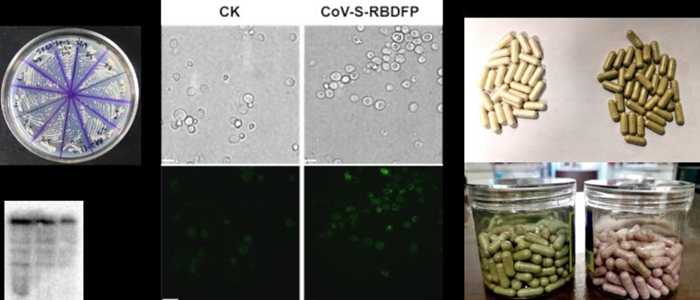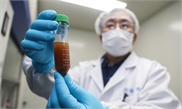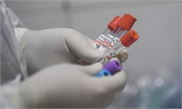
COVID19 oral vaccine. Photo: Courtesy of Tianjin University
Online debates are heating up on China's social media platforms after a Chinese college professor claimed on Tuesday that his team had developed an oral vaccine to protect against the novel coronavirus, or COVID19.Doubts center on the effectiveness of the oral vaccine, as the drug was developed within a very short period of time and the professor did not provide sufficient evidence to prove its reliability.
Tianjin University, in North China, said on Tuesday that the oral vaccine utilizes food-grade saccharomyces cerevisiae as a carrier and the spike protein of the coronavirus as a target spot to produce antibodies to fight COVID-19.
Huang Jihua, the professor who led the project, has himself taken four doses and has not yet experienced any side effects.
A source close to the research told the Global Times that he questioned the reliability of the vaccine. "Based on what I know, Huang found a receptor based on published RNA sequencing. And then he began asking for cooperation," the source said on the condition of anonymity.
On China's Twitter-like micro-blog Sina Weibo, the news has elicited thousands of comments.
A Weibo user named "Chayuquan" expressed their suspicions about whether the spike -protein can be absorbed if a person drinks the vaccine, and if it can be absorbed, why it should be drunk instead of injected.
However, some users have called for netizens to respect scientists. "I fail to understand why so many people suspect these scientists. No matter what the research method was, I believe scientists just want to prove the effectiveness and safety of the vaccine as soon as possible," a user named "Buxiangyuanxing2008" wrote.
A spokesperson from Tianjin University told the Global Times that there are "wording problems" on the development of vaccine, and that it will correct them after communicating with Huang's team.
In response to online discussions, Huang said the vaccine, despite being developed successfully, has not gone through clinical trails. He noted that he has developed an animal vaccine for COVID-19 and that the vaccine has proven to be effective, which led him to deduce the vaccine could be effective on humans.
"But it needs to go through animal testing and also human testing to determine its effectiveness," Huang said.
He explained that the vaccine could be developed within such a short period of time because his team has been building a biological prevention and formulation development platform based on food-grade saccharomyces cerevisiae for years.
For the next step, Huang said he is looking for qualified enterprises to work together with his team to follow evaluation procedures, so as to speed up the clinical verification process and expand the vaccine's usage.


